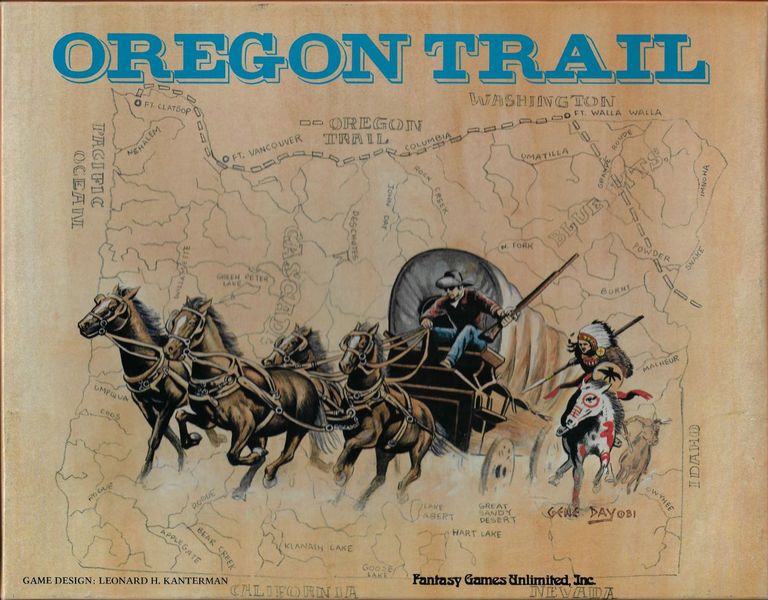Oregon Trail (1981) Board Game
The Oregon Trail board game is based on the popular computer game of the same name that was first released in in 1981. The game is designed to simulate the experience of pioneers traveling along the Oregon Trail in the 19th century. Players must make decisions about supplies, travel pace, and route in order to successfully reach their destination.
Game Components of Oregon Trail
How To Setup Oregon Trail
To set up the game, players first place the game board in the middle of the playing area. Each player chooses a token and places it at the starting point on the board. Players then receive a set amount of resources and event cards. The rulebook provides detailed instructions on the initial distribution of resources and the placement of tokens.
Gameplay Mechanics and Game Objective
Player Experience
Playing the 1981 version of the Oregon Trail board game offers a mix of strategic resource management and the unpredictability of historical events. Players must balance their resources carefully and make decisions that impact their party’s survival. The game is relatively simple but can be engaging, especially for those interested in American history.
Pros
Cons
Personal Thoughts on Oregon Trail
The 1981 Oregon Trail board game is best suited for those who enjoy historical themes and simple, strategic gameplay. It is a good introduction to resource management and historical simulations but may not offer the depth and complexity that modern board game enthusiasts might seek. Despite its limitations, it remains a nostalgic and educational option for those interested in the pioneering era of American history.
We are supported by our audience. When you purchase through links on our site, we may earn an affiliate commission, at no extra cost for you. Learn more.

